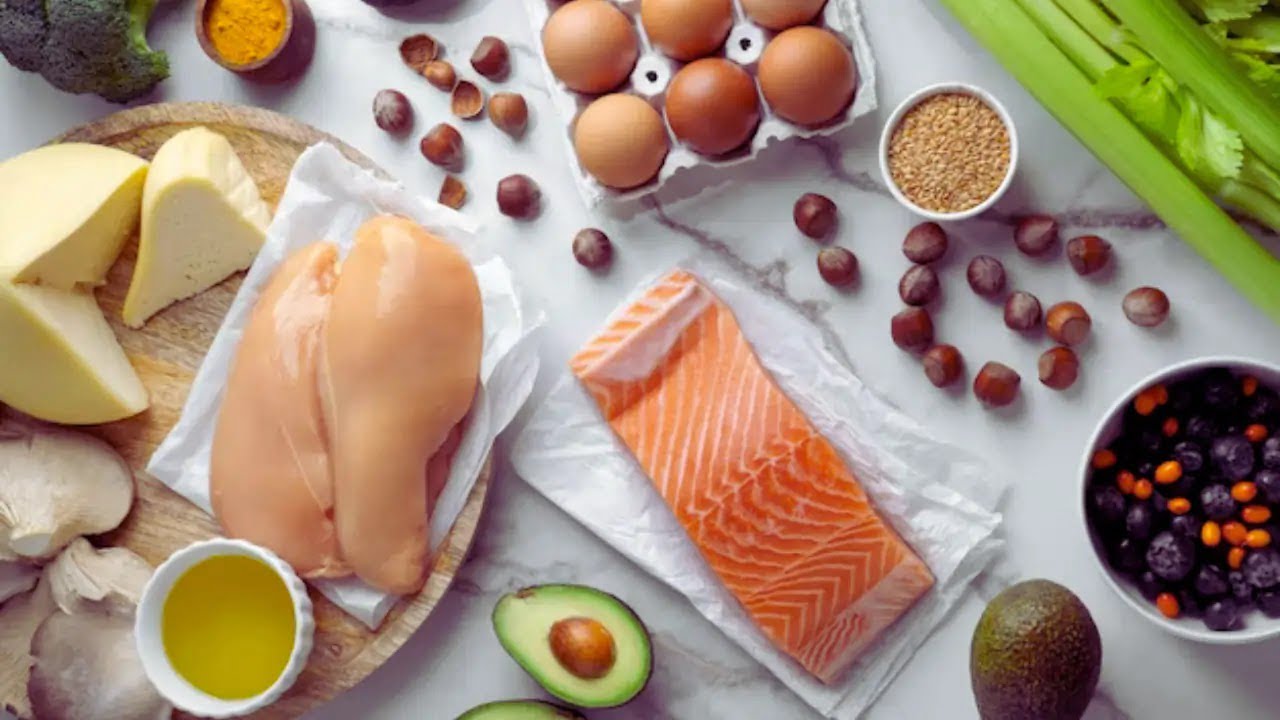Ultra-processed foods are foods that have undergone extensive industrial processing and contain many artificial ingredients, such as preservatives, colorings, flavorings, and sweeteners. These foods are often high in calories, fat, sugar, and salt, and low in nutrients, fiber, and antioxidants. Consuming too many ultra-processed foods can increase the risk of obesity, diabetes, heart disease, cancer, and other chronic diseases.
In this article, we will explain what ultra-processed foods are, why they are bad for your health and the environment, and how you can replace them with healthier alternatives.
What are Ultra-Processed Foods?

According to the NOVA classification system, ultra-processed foods are those that have five or more ingredients and usually include substances that are not typically used in culinary preparations, such as hydrogenated oils, modified starches, and emulsifiers. Some examples of ultra-processed foods are:
– Soft drinks
– Candy and chocolate bars
– Ice cream and frozen desserts
– Cakes, cookies, and pastries
– Chips, crackers, and popcorn
– Instant noodles and soups
– Frozen pizzas and burgers
– Hot dogs, sausages, and nuggets
– Breakfast cereals and bars
– Margarine and spreads
You can easily identify ultra-processed foods by reading the ingredient list on the package. If you see a long list of unfamiliar or chemical-sounding names, chances are it is an ultra-processed food.
Why are Ultra-Processed Foods Bad for You?
Ultra-processed foods are bad for your health for several reasons. They often contain trans fats, which can raise your bad cholesterol and lower your good cholesterol, leading to plaque buildup in your arteries. They also contain added sugars, which can spike your blood sugar levels and increase your risk of insulin resistance and type 2 diabetes. Moreover, they contain high amounts of sodium, which can raise your blood pressure and cause fluid retention, swelling, and kidney damage.
Additionally, ultra-processed foods are low in fiber, which is essential for your digestive health and can help lower your cholesterol and blood sugar levels. They are also low in antioxidants, which are compounds that protect your cells from oxidative stress and inflammation and can prevent or slow down the progression of various diseases.
Why are Ultra-Processed Foods Bad for the Environment?
Ultra-processed foods are not only bad for your health, but also for the environment. They often require a lot of energy, water, and land to produce, and generate a lot of greenhouse gas emissions and waste. They also contribute to deforestation, soil erosion, biodiversity loss, and water pollution.
Furthermore, ultra-processed foods are often packaged in plastic, which can leach harmful chemicals into the food and the environment, contributing to pollution and climate change. Plastic packaging is also difficult to recycle and can end up in landfills or oceans, where it can harm wildlife and ecosystems.
How to Replace Ultra-Processed Foods with Healthier Alternatives?
The best way to avoid ultra-processed foods is to eat more whole, minimally processed, or homemade foods. These foods are closer to their natural state and contain fewer artificial ingredients. They are also rich in nutrients, fiber, and antioxidants, and can support your health and well-being. Here are some tips for healthy alternatives to ultra-processed foods:
– Instead of soft drinks, drink water, unsweetened tea, or homemade fruit juice or smoothie.
– Instead of candy and chocolate bars, eat fresh or dried fruits, nuts, seeds, or dark chocolate.
– Instead of ice cream and frozen desserts, make your own frozen yogurt, sorbet, or popsicle with natural ingredients.
– Instead of cakes, cookies, and pastries, bake your own with whole wheat flour, oats, honey, or maple syrup.
– Instead of chips, crackers, and popcorn, snack on raw or roasted vegetables, hummus, guacamole, or salsa.
– Instead of instant noodles and soups, cook your own with whole grain pasta, rice, or noodles, and fresh or canned vegetables, beans, or lentils.
– Instead of frozen pizzas and burgers, make your own with whole wheat dough or bread, tomato sauce, cheese, and toppings of your choice.
– Instead of hot dogs, sausages, and nuggets, grill or bake your own with lean meat, poultry, or fish, and season with herbs and spices.
– Instead of breakfast cereals and bars, prepare your own with oatmeal, granola, or muesli, and add fresh or dried fruits, nuts, seeds, or yogurt.
– Instead of margarine and spreads, use butter, olive oil, coconut oil, or nut butter.
By choosing these healthier alternatives, you can reduce your intake of ultra-processed foods and improve your diet quality and health outcomes. You can also save money, reduce waste, and enjoy the satisfaction of making your own food. Remember, you are what you eat, so eat well and live well.
Conclusion
Ultra-processed foods are foods that have undergone extensive industrial processing and contain many artificial ingredients, such as preservatives, colorings, flavorings, and sweeteners. These foods are often high in calories, fat, sugar, and salt, and low in nutrients, fiber, and antioxidants. Consuming too many ultra-processed foods can increase the risk of obesity, diabetes, heart disease, cancer, and other chronic diseases. They can also harm the environment by requiring a lot of resources, generating a lot of waste, and contributing to pollution and climate change.
The best way to avoid ultra-processed foods is to eat more whole, minimally processed, or homemade foods. These foods are closer to their natural state and contain fewer artificial ingredients. They are also rich in nutrients, fiber, and antioxidants, and can support your health and well-being. By choosing healthier alternatives, you can reduce your intake of ultra-processed foods and improve your diet quality and health outcomes. You can also save money, reduce waste, and enjoy the satisfaction of making your own food. Remember, you are what you eat, so eat well and live well.
FAQs
Q: What are some examples of ultra-processed foods?
Some examples of ultra-processed foods are soft drinks, candy and chocolate bars, ice cream and frozen desserts, cakes, cookies, pastries, chips, crackers, popcorn, instant noodles and soups, frozen pizzas and burgers, hot dogs, sausages, and nuggets, breakfast cereals and bars, and margarine and spreads.
Q: How can I tell if a food is ultra-processed?
One way to tell if a food is ultra-processed is to read the ingredient list on the package. If you see a long list of unfamiliar or chemical-sounding names, chances are it is an ultra-processed food. Another way is to use the NOVA classification system, which categorizes foods according to their processing levels. Ultra-processed foods are those that have five or more ingredients and usually include substances that are not typically used in culinary preparations, such as hydrogenated oils, modified starches, and emulsifiers.
Q: Why are ultra-processed foods bad for my health?
Ultra-processed foods are bad for your health for several reasons. They often contain trans fats, which can raise your bad cholesterol and lower your good cholesterol, leading to plaque buildup in your arteries. They also contain added sugars, which can spike your blood sugar levels and increase your risk of insulin resistance and type 2 diabetes. Moreover, they contain high amounts of sodium, which can raise your blood pressure and cause fluid retention, swelling, and kidney damage. Additionally, ultra-processed foods are low in fiber, which is essential for your digestive health and can help lower your cholesterol and blood sugar levels. They are also low in antioxidants, which are compounds that protect your cells from oxidative stress and inflammation and can prevent or slow down the progression of various diseases.
Q: Why are ultra-processed foods bad for the environment?
Ultra-processed foods are not only bad for your health, but also for the environment. They often require a lot of energy, water, and land to produce, and generate a lot of greenhouse gas emissions and waste. They also contribute to deforestation, soil erosion, biodiversity loss, and water pollution. Furthermore, ultra-processed foods are often packaged in plastic, which can leach harmful chemicals into the food and the environment, contributing to pollution and climate change. Plastic packaging is also difficult to recycle and can end up in landfills or oceans, where it can harm wildlife and ecosystems.
Q: How can I replace ultra-processed foods with healthier alternatives?
The best way to replace ultra-processed foods with healthier alternatives is to eat more whole, minimally processed, or homemade foods. These foods are closer to their natural state and contain fewer artificial ingredients. They are also rich in nutrients, fiber, and antioxidants, and can support your health and well-being. Here are some examples of healthy alternatives to ultra-processed foods:
– Instead of soft drinks, drink water, unsweetened tea, or homemade fruit juice or smoothie.
– Instead of candy and chocolate bars, eat fresh or dried fruits, nuts, seeds, or dark chocolate.
– Instead of ice cream and frozen desserts, make your own frozen yogurt, sorbet, or popsicle with natural ingredients.
– Instead of cakes, cookies, and pastries, bake your own with whole wheat flour, oats, honey, or maple syrup.
– Instead of chips, crackers, and popcorn, snack on raw or roasted vegetables, hummus, guacamole, or salsa.
– Instead of instant noodles and soups, cook your own with whole grain pasta, rice, or noodles, and fresh or canned vegetables, beans, or lentils.
– Instead of frozen pizzas and burgers, make your own with whole wheat dough or bread, tomato sauce, cheese, and toppings of your choice.
– Instead of hot dogs, sausages, and nuggets, grill or bake your own with lean meat, poultry, or fish, and season with herbs and spices.
– Instead of breakfast cereals and bars, prepare your own with oatmeal, granola, or muesli, and add fresh or dried fruits, nuts, seeds, or yogurt.
– Instead of margarine and spreads, use butter, olive oil, coconut oil, or nut butter.






 Afrikaans
Afrikaans Albanian
Albanian Amharic
Amharic Arabic
Arabic Armenian
Armenian Azerbaijani
Azerbaijani Basque
Basque Belarusian
Belarusian Bengali
Bengali Bosnian
Bosnian Bulgarian
Bulgarian Catalan
Catalan Cebuano
Cebuano Chichewa
Chichewa Chinese (Simplified)
Chinese (Simplified) Chinese (Traditional)
Chinese (Traditional) Corsican
Corsican Croatian
Croatian Czech
Czech Danish
Danish Dutch
Dutch English
English Esperanto
Esperanto Estonian
Estonian Filipino
Filipino Finnish
Finnish French
French Frisian
Frisian Galician
Galician Georgian
Georgian German
German Greek
Greek Gujarati
Gujarati Haitian Creole
Haitian Creole Hausa
Hausa Hawaiian
Hawaiian Hebrew
Hebrew Hindi
Hindi Hmong
Hmong Hungarian
Hungarian Icelandic
Icelandic Igbo
Igbo Indonesian
Indonesian Irish
Irish Italian
Italian Japanese
Japanese Javanese
Javanese Kannada
Kannada Kazakh
Kazakh Khmer
Khmer Korean
Korean Kurdish (Kurmanji)
Kurdish (Kurmanji) Kyrgyz
Kyrgyz Lao
Lao Latin
Latin Latvian
Latvian Lithuanian
Lithuanian Luxembourgish
Luxembourgish Macedonian
Macedonian Malagasy
Malagasy Malay
Malay Malayalam
Malayalam Maltese
Maltese Maori
Maori Marathi
Marathi Mongolian
Mongolian Myanmar (Burmese)
Myanmar (Burmese) Nepali
Nepali Norwegian
Norwegian Pashto
Pashto Persian
Persian Polish
Polish Portuguese
Portuguese Punjabi
Punjabi Romanian
Romanian Russian
Russian Samoan
Samoan Scottish Gaelic
Scottish Gaelic Serbian
Serbian Sesotho
Sesotho Shona
Shona Sindhi
Sindhi Sinhala
Sinhala Slovak
Slovak Slovenian
Slovenian Somali
Somali Spanish
Spanish Sundanese
Sundanese Swahili
Swahili Swedish
Swedish Tajik
Tajik Tamil
Tamil Telugu
Telugu Thai
Thai Turkish
Turkish Ukrainian
Ukrainian Urdu
Urdu Uzbek
Uzbek Vietnamese
Vietnamese Welsh
Welsh Xhosa
Xhosa Yiddish
Yiddish Yoruba
Yoruba Zulu
Zulu